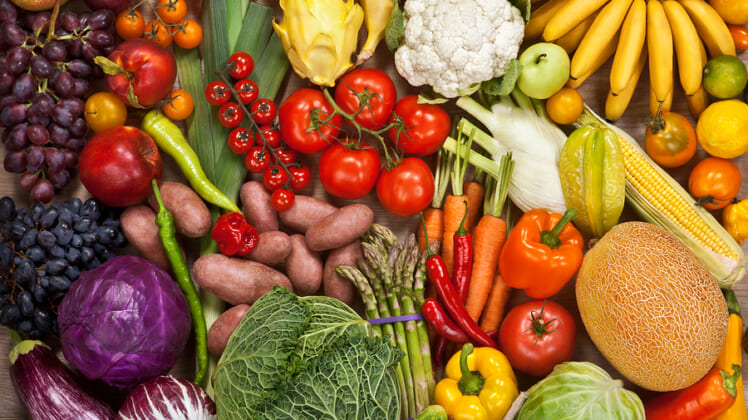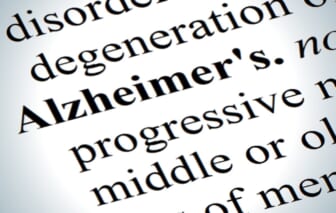The Best Diets for Feeding Your Brain

Especially during grade school and college, you hear a lot about brain food:
Teachers encourage you to sleep well and eat a good breakfast before an exam. You know the gist of their advice: low sugar, whole grains, and healthy fats like nuts.
You respect their opinion, but do diet changes actually have an effect on the brain?
Yes, they do, and researchers are now recommending a few specific diets.
Eating MIND-Fully
Martha Clare Morris, a nutritional epidemiologist, developed a diet called the MIND Diet that targets people’s risk for Alzheimer’s. With research funded by the National Institute on Aging, Morris aimed for a diet that consisted of many foods ideal for brain function.
Morris and her colleagues decided to focus on a blend of the Mediterranean Diet and the DASH Diet because of their familiarity with them already in the US.
To research the MIND Diet’s effects, the researchers conducted a study on over 900 seniors for nearly a decade. They found that those who adhered to the diet rather strictly lowered their risk by as much as 53 percent!
Even those who followed the diet moderately still reduced risk by over 30 percent. Their research was published in the journal Alzheimer’s & Dementia.
Following the MIND Diet is simple. The researchers created a shortlist of foods that you should include in your diet every day:
- Nuts
- Beans
- Fish
- Poultry
- Wine
- Vegetables
- Leafy Greens
- Whole Grains
- Berries
- Olive Oil
For best results against Alzheimer’s, you should also avoid red meat, fried or fast foods, cheese, butter, and sweets.
From The Mediterranean
Because the MIND Diet comes from a blend of two diets, you will get good brain benefits with each singular diet too. One of those stems from the Mediterranean.
Researchers have repeatedly identified the benefits of this diet, given its strong basis in plant-based foods and heart-healthy unsaturated fats. According to the Mayo Clinic, research has shown the diet to lower bad cholesterol and reduce the risk for common diseases like cancer and Parkinson’s.
As its name suggests, you simply adhere to a diet common to countries in the Mediterranean. The diet consists of plenty of fruits, vegetables, nuts, olive oil, herbs, and spices.
A few times a week, you can also eat poultry, seafood, cheese, and yogurt. In general, the Mediterranean Diet is low in starchy foods and sugary sweets.
The DASH Diet
Finally, the heart-healthy DASH Diet is another great option for lowering your risk of Alzheimer’s.
According to Michelle M. Mielke, PhD, an associate professor at the Mayo Clinic, “Typically, what’s good for the heart is good for the brain.”
The DASH Diet (Dietary Approaches to Stop Hypertension) also has a simple basis. It was designed to lower blood pressure and subsequently lower a person’s risk for heart disease, a huge problem in the US. While the diet does recommend specific servings of food groups each day, the basic guidelines include:
- Eating more fruits and vegetables
- Reducing saturated fats, cholesterol, and added sugar
- Getting in lean meats, whole grains, and nuts
- Limiting red meat and salt
According to the same researchers of the MIND Diet, seniors who adhere to the Mediterranean or DASH Diets still reduce the risk for Alzheimer’s by nearly 40 percent. However, moderate or low adherence shows very few results.
The Truth About Nutrition
The Best Brain Foods
In order to gain the benefits for your brain, the proponents of the MIND Diet specifically recommend several foods that will literally fuel your brainpower. These include:
Fatty Fish
Fish contain high sources of vitamin D and healthy fats that you’ll have a hard time finding elsewhere.
Blueberries
This superfruit has disease-fighting antioxidants, including one that’s particularly helpful for brain function. This antioxidant, anthocyanin, protects the brain and can boost short-term memory and coordination as well.
Olive Oil
This healthy oil by itself can improve memory function. It contains an age-reversing antioxidant called polyphenol and is known as a heart-healthy alternative to saturated fats.
Leafy Greens
These will add a good source of vitamins and nutrients to your day, including a solid dose of vitamin K.
Feeding your brain the right foods doesn’t have to get complicated. These diets simply propose an increase in plant-based protein, healthy fats, and leafy vegetables. In the end, you could stave off an unwelcome battle of Alzheimer’s and spend more time enjoying the life you love.

